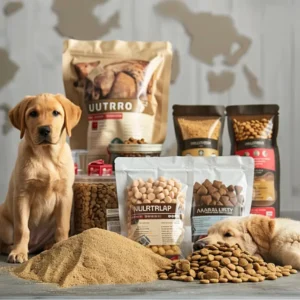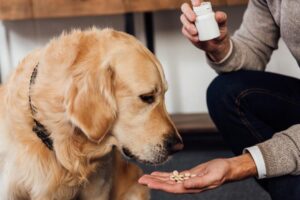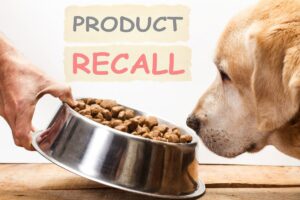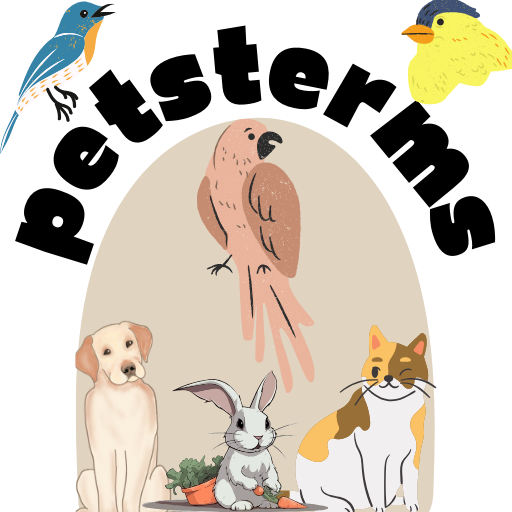
Dr. July Morgan pet food recall has alarmed numerous pet guardians. This event underscores critical safety issues in pet nutrition. Understanding the underlying causes is essential for your animal’s health. Here, we’ll examine the key elements of the recall and its effects on your cherished companions.
Why Was Dr. July Morgan Pet Food Recalled?
The Dr. July Morgan pet food recall has stirred up concerns among pet owners, and for good reason. Recalls happen to protect pets from potentially dangerous ingredients, contamination, or quality issues. Let’s dive into why this specific recall took place and what it means for your pet’s well-being.
Potential Contamination
One of the primary reasons behind the Dr. July Morgan pet food recall was potential contamination. Batches of food were found to contain substances that could harm pets, such as harmful bacteria or chemicals not intended for consumption. Such contaminants pose serious health risks, especially to young or elderly pets.
Quality Control Issues
Beyond contamination, quality control issues have been reported. Some products may not meet the high standards Dr. July Morgan set for their brand, leading to recalls to ensure that pets aren’t fed inconsistent or unsafe food. This commitment to quality control is essential to maintaining trust in pet food brands.
Dangerous Ingredients
Another concern was the possible presence of ingredients that can cause digestive issues or allergies in pets. Some animals are particularly sensitive to specific additives, and even minor exposure can lead to serious symptoms.
By addressing these risks, Dr. July Morgan’s recall aims to keep pets safe and maintain customer trust. This information helps pet owners make informed choices and keep their furry friends happy and healthy.
Which Products Are Affected?

Knowing which products are involved in the Dr. July Morgan pet food recall is crucial for every pet owner. Identifying the affected items will help you act quickly to protect your pet’s health. Below, we’ll outline the recalled products and offer guidance on spotting them in your pantry.
List of Affected Products
Dr. July Morgan’s recall includes a specific range of products, primarily certain types of dry and wet pet food. Each affected product falls within specific batch numbers or manufacturing dates, which are crucial for identifying any recalled items. Check for product names, batch codes, or expiration dates provided by Dr. July Morgan’s brand.
How to Identify Recalled Products
To ensure you’re not feeding any recalled product to your pet, examine packaging for batch codes or date markings. These are often printed near the nutrition label or along the product’s top seam. Compare them to the official list released by Dr. July Morgan, which can be found on their website or through trusted pet safety resources.
Steps to Take if You Have an Affected Product
If you find any recalled items, stop using them immediately. Dr. July Morgan offers refunds or replacements for recalled products, so reach out to their customer service for assistance. Removing these products from your home is the best way to keep your pet safe.
Risks to Pets and Symptoms to Watch For
The Dr. July Morgan pet food recall highlights serious health risks to pets. If your pet has consumed any recalled products, it’s essential to monitor for symptoms. Let’s look at potential risks and signs to watch for to keep your pet safe.
Health Risks to Pets
Contaminated or low-quality pet food can cause various health issues, ranging from mild to severe. Some contaminants, like harmful bacteria or toxins, can lead to dangerous reactions, especially in young, elderly, or immune-compromised pets. Pets with allergies or sensitivities may experience even stronger reactions, which can escalate quickly without treatment.
Symptoms to Watch For
Common symptoms include vomiting, diarrhea, and sudden changes in appetite or behavior. Your pet might appear lethargic, have difficulty breathing, or show signs of stomach discomfort. More severe symptoms can include tremors, excessive drooling, or unusual thirst. If you notice any of these, contact a veterinarian immediately.
What to Do If Symptoms Appear
If your pet shows signs of illness, stop feeding the recalled product right away. Contact your vet to discuss symptoms and treatment options. In some cases, bringing the packaging to the vet can be helpful for identifying specific contaminants.
By recognizing these symptoms early, you can help your pet recover and prevent more serious health issues.
What Should Pet Owners Do If They Have Affected Products?

If you have any of the affected products from the Dr. July Morgan pet food recall, taking quick action is key. Ensuring your pet’s safety starts with knowing what to do next. Here’s a guide to handling recalled products safely and effectively.
Stop Using the Recalled Product
First, stop feeding the recalled product to your pet immediately. Even if your pet hasn’t shown any symptoms, it’s best to prevent further risk by avoiding the affected food altogether. Safety should always come first.
Check Recall Instructions
Refer to the official recall notice from Dr. July Morgan to see specific instructions for affected products. This information might include details on how to return or dispose of the product, as well as any precautions to follow for safe handling.
Dispose of or Return the Product
If instructed, return the product to the store where you purchased it or dispose of it securely. Make sure it’s sealed and out of reach of pets and children. Some brands may offer refunds or replacements, so check with Dr. July Morgan’s customer support for any available options.
Clean and Sanitize Food Storage Areas
After removing the recalled product, clean and sanitize any containers or areas where it was stored. This step can help eliminate lingering contaminants and ensure a fresh, safe environment for your pet’s next meal.
By following these steps, you can help protect your pet from potential health risks associated with the recall.
Alternatives to Dr. July Morgan Pet Food
If the Dr. July Morgan pet food recall has you searching for safer options, there are many reputable alternatives to consider. Finding a high-quality brand can ensure your pet continues to get the nutrition they need without any safety concerns. Here are some recommended alternatives and tips for choosing the best pet food.
High-Quality Pet Food Brands
Several trusted pet food brands prioritize ingredient quality and safety. Brands like Blue Buffalo, Wellness Core, and Hill’s Science Diet are known for their transparency, using natural ingredients and avoiding harmful additives. Many of these companies also have rigorous safety standards, so you can feel confident in their products.
Choosing the Right Food for Your Pet
When selecting a new pet food, look for options that list real meat, vegetables, and grains as primary ingredients. Avoid foods with fillers, artificial colors, or preservatives. Opting for foods with limited ingredients can also help reduce the risk of allergies or sensitivities in pets.
Consulting Your Veterinarian
For personalized advice, consider consulting your veterinarian. They can recommend brands that suit your pet’s specific needs, age, and dietary requirements, ensuring a balanced and safe diet. A vet can also provide insight on transitioning to new food smoothly, which is especially important if your pet has a sensitive stomach.
By choosing one of these reputable alternatives, you can keep your pet’s diet safe, nutritious, and enjoyable.
How to Stay Informed About Future Pet Food Recalls

Staying updated on pet food recalls is essential for protecting your pet’s health. Knowing where to find reliable information can help you act quickly if another recall occurs. Here are the best ways to stay informed about future pet food recalls.
Sign Up for Pet Food Recall Alerts
Several organizations, like the FDA and ASPCA, offer free pet food recall alerts. By subscribing to these notifications, you’ll receive emails or texts whenever a new recall is announced. These alerts are a convenient way to get timely information and ensure you don’t miss important updates.
Follow Trusted Pet Safety Websites
Websites such as Petful and Pet Food Advisor regularly track and report recalls. Bookmarking these sites and checking them periodically can keep you in the loop about safety concerns related to pet food. These sites often provide recall details, affected products, and steps for handling recalled items.
Consult Your Veterinarian
Veterinarians are usually informed about major recalls and can offer guidance on safe pet food options. During your regular visits, ask if there have been any recent recalls. Your vet can also provide tips on monitoring your pet’s health if they’ve consumed a recalled product.
By using these resources, you’ll always be a step ahead, ensuring your pet’s safety and well-being.
Conclusion
The Dr. July Morgan pet food recall reminds me of the importance of vigilance in pet care. Staying updated on recalls, choosing quality food, and watching for symptoms are simple steps to protect our pets. I always keep an eye out for updates and follow trusted sources—it’s worth the peace of mind. Keeping pets safe starts with being proactive, so let’s all stay informed and give our pets the healthiest, happiest lives possible.

